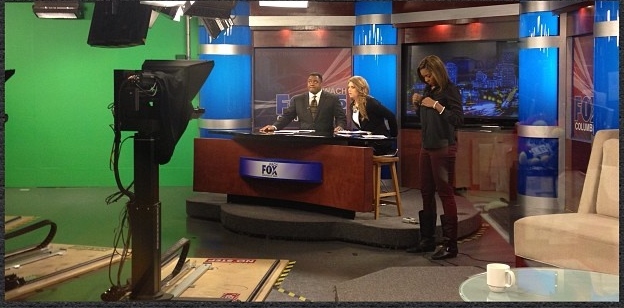Ever since I started working for a CBS affiliate a couple of months ago I watch more of the CBS Evening News; it’s the lead-in to my station’s six o’clock local newscast.
I realized yesterday that when I watch this broadcast I talk to the screen. I’ll say things like “that’s crazy, that’s a shame, that’s sad, now why did they do that, how did they get that or great story!” It’s almost like when you’re crazy uncle is watching a football game and he can’t shut up about what’s going on in the game. I know it must drive my Executive Producer crazy; if she’s even paying me any attention. Her desk is next to mine.
Anyway, I’ve always said that when you write stories you need to connect with your viewers on an emotional level and that’s exactly what the CBS Evening News does. It’s good old fashioned journalism that stirs my emotions. It’s unbiased, fair reporting that allows me to decide to how to feel or react to the subject matter that’s presented on the broadcast. And because I’m pulled in emotionally I’m actually paying attention and listening to what the team is reporting on that day.
This is part of what it takes to keep your viewers coming back to you to get the information they need to make informed decisions. A friend of mine told me a while back that when it comes to network evening newscasts he watches the CBS Evening News. I now know and see why.
As small market journalists, I know there’s a lot of emphasis placed on doing active stand ups and live shots to make your story interesting, but remember, you also have to incorporate good, accurate fair storytelling to connect with your viewers. The CBS Evening News is proof that good old fashioned journalism still works.
I realized yesterday that when I watch this broadcast I talk to the screen. I’ll say things like “that’s crazy, that’s a shame, that’s sad, now why did they do that, how did they get that or great story!” It’s almost like when you’re crazy uncle is watching a football game and he can’t shut up about what’s going on in the game. I know it must drive my Executive Producer crazy; if she’s even paying me any attention. Her desk is next to mine.
Anyway, I’ve always said that when you write stories you need to connect with your viewers on an emotional level and that’s exactly what the CBS Evening News does. It’s good old fashioned journalism that stirs my emotions. It’s unbiased, fair reporting that allows me to decide to how to feel or react to the subject matter that’s presented on the broadcast. And because I’m pulled in emotionally I’m actually paying attention and listening to what the team is reporting on that day.
This is part of what it takes to keep your viewers coming back to you to get the information they need to make informed decisions. A friend of mine told me a while back that when it comes to network evening newscasts he watches the CBS Evening News. I now know and see why.
As small market journalists, I know there’s a lot of emphasis placed on doing active stand ups and live shots to make your story interesting, but remember, you also have to incorporate good, accurate fair storytelling to connect with your viewers. The CBS Evening News is proof that good old fashioned journalism still works.



 RSS Feed
RSS Feed